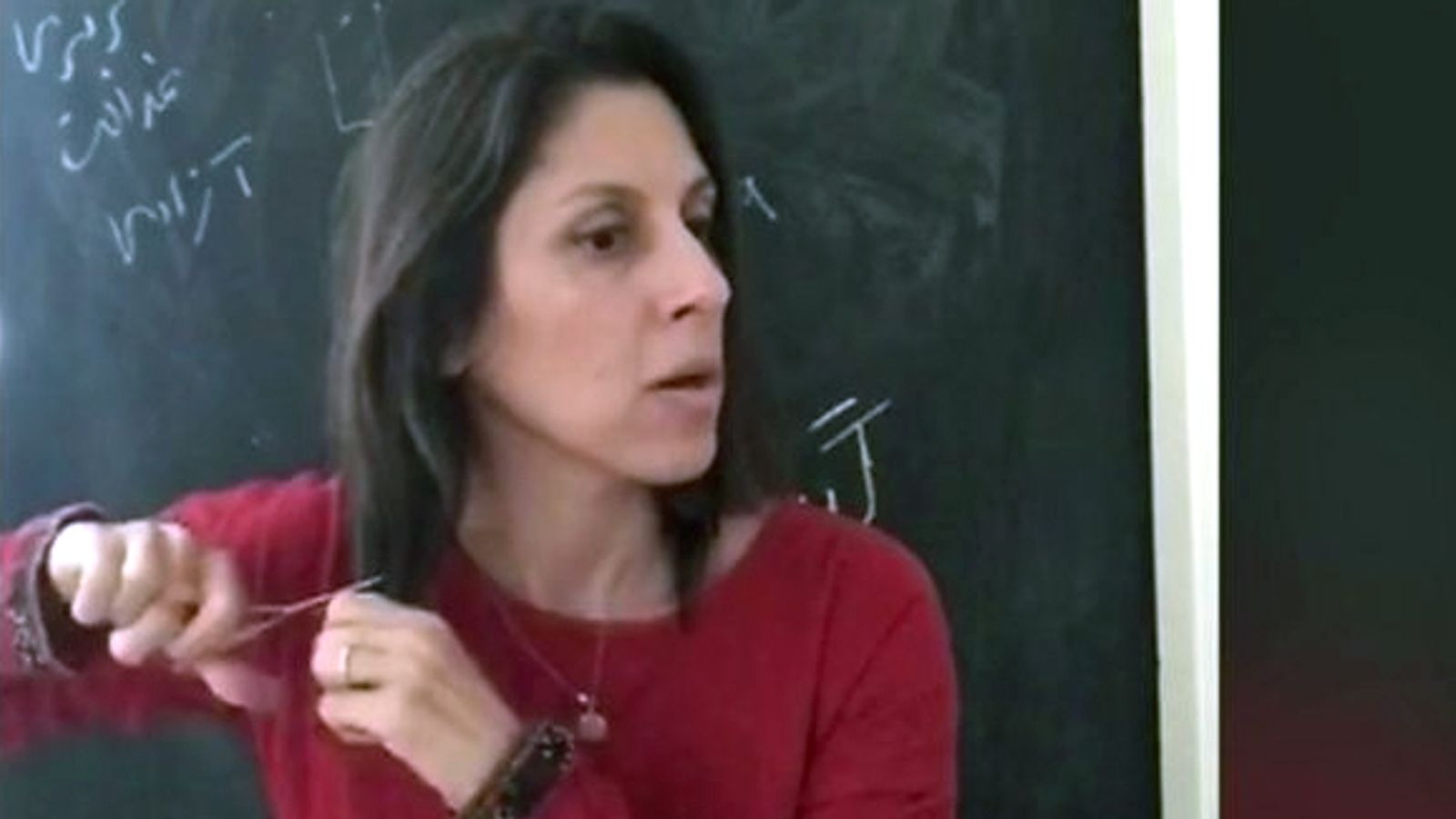How Nazanin is using her freedom to fight for those still being oppressed by the Iranian regime

I first met Nazanin Zaghari-Ratcliffe shortly after she was released from prison in Iran and reunited with her husband Richard and daughter Gabriella.
We met in a coffee shop near her home and talked about what she had been through.
Her arrest, her incarceration and her and Richard’s six-year battle to get her home. Gabriella was less than two years old when her mother was wrongly imprisoned, and nearly eight when she came home.
This was a woman who had travelled to Iran on holiday in 2016, a mother of a young child and a private citizen, and she returned home a national figure, whose story had become front page news not just in the UK but around the world.
Nazanin’s was a case that eventually also instructed Iranian-British relations, after then foreign secretary Jeremy Hunt escalated her plight to a formal, legal dispute between Tehran and London in 2018.
And when her freedom was finally secured in March 2022, with the UK paying a historic £400m debt to Iran, then the foreign secretary, and now prime minister, Liz Truss, was waiting in Northolt to greet her off the plane.
Through her own ordeal Nazanin Zaghari-Ratcliffe had lit a touchpaper against oppression, injustice and the abuse of women, when she emerged from the notorious Evin prison and house arrest, she became a symbol of freedom and overcoming adversity.
But she was above all else a mother that had been separated from her child for six years, and after a press conference, a BBC interview and the odd newspaper interview, Nazanin dropped off the radar. It was an attempt to get back to some sort of normal life.
And then, on Nazanin’s six-month anniversary of freedom, 22-year-old Mahsa Amini was arrested for allegedly wearing a hijab headscarf in an “improper” way.
Advertisement
Her death sparked protests across Iran, despite the crackdown on anti-regime demonstrations which has led to hundreds of arrests and dozens of deaths, according to Amnesty International.
It also ignited memories and anger for Nazanin Zaghari-Ratcliffe, who herself was arrested at the airport as she was about to fly home, separated from her child and then put in solitary confinement for nine months.
“It does bring memories of when I was arrested, but also how helpless you are when you are in custody. What has helped the Iranian regime sustain the way they are treating people is just the way they arrest you and they disconnect you from the rest of the world.
“So they put them in solitary confinement, or they take you somewhere unknown and they break you emotionally. So this in my head, every time that I hear the news of somebody being arrested, I think about what I have gone through, the night of my arrest, imagining what they will be going through now.
“With Mahsa’s arrest and her death, and then subsequent arrests and everything, this whole story of six years ago came back to me again,” she explains, and says her daughter has picked up that “mummy is not really happy”.
“I think it would be very hard to just sit back and relax. Even though I am living far away, but my heart it still with them.”
Nazanin also tells me that she thinks it’s her “responsibility” to speak up, and to stand in solidarity with Iranians protesting. She cut her hair in a show of solidarity with women in Iran, reciting the names of men and women who were imprisoned or had died at the hands of the regime. And she also decided to give an interview to Sky News to raise the case of Iranian women and implore political leaders “not to turn a blind eye” to what is happening. She told me the UK government “must act” over human rights abuses.
“I want them (the UK government) to protect us. We cannot be indifferent to what is happening in Iran. And if we talk about protecting the rights of citizens, we have to do something about it. And I think we have to hold Iran accountable. And the world has to make it very, very expensive for Iran to violate human rights so easily. It should be costly.”
Nazanin Zaghari-Ratcliffe tells me she wants to see sanctions in place and argues that any discussion over nuclear deals with Iran, and trying to prevent proliferation of nuclear weapons, should not in any way compromise Western countries’ approach to human rights. “That should be a completely separate topic,” she tells me.
She also wants to see the UK government “observe”, “protect” and “act” over the human rights abuses in Iran, including introducing sanctions, and that she is “expecting Liz Truss to condemn what’s happening” in the country.
Read more:
Nazanin Zaghari-Ratcliffe forced to sign ‘false confession’ before leaving Iran
Downing Street defends Nazanin after critics say she should be more grateful for her release
As for the women, who on the streets of Iran that are fighting, as she did during her six years of incarceration, there will be no going back. “What I do believe is Iran will never be the same. Whatever happens in the future, it will never go back to where it was before September.”
Whether it’s regime change or a change in approach to women, is hard to read, but Nazanin is sure that change cannot be thwarted and she intends to use her voice and her platform to press the case for fellow Iranian women. “I never felt free when I came out, as I have mentioned many times, freedom would only be complete when there is nobody in Iran put into prison for standing up for their rights.”
A woman freed, but forever tied to the battle she didn’t want or ask to fight. Now fighting for and with those women and men caught up in the oppression of the Iranian regime.